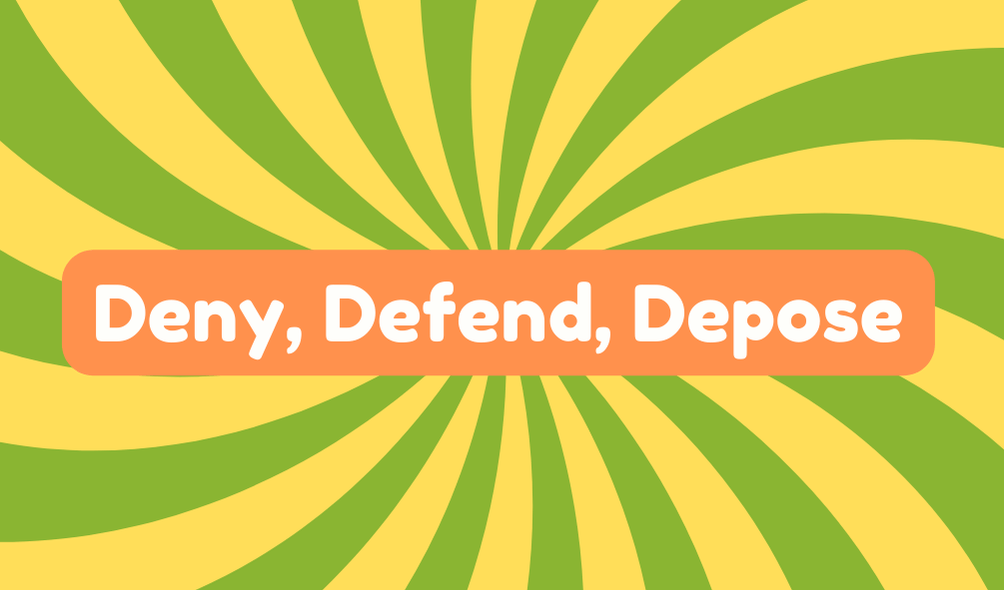The terms deny, defend, and depose reflect a problematic approach taken by many organizations, particularly in industries like insurance and politics. Denial involves instantly rejecting claims, defending often entails maintaining a defensive posture, and deposing refers to formal questioning processes that reveal deeper issues. This strategy prioritizes evasion over accountability, contributing to widespread consumer distrust. Originating from critiques of corporate behavior, these terms highlight the troubling trend of minimizing responsibility. Recognizing this pattern is essential for promoting transparency. Understanding how these tactics operate can foster a demand for more ethical practices in today's corporate landscape.
Synonyms
In the domain of corporate accountability, the phrase "deny, defend, depose" captures a defensive posture often adopted by organizations facing scrutiny. This terminology reflects a series of avoidance strategies that prioritize evasion rather than genuine accountability practices. Various synonyms embody this mindset, effectively illustrating the cyclical nature of corporate defensiveness:
- Delay: Postponing responses to inquiries or allegations.
- Disavow: Refusing to acknowledge or accept responsibility.
- Dismiss: Rejecting claims without thorough examination.
- Deflect: Redirecting criticism to avoid accountability.
These terms reveal an alarming trend where organizations frequently sidestep ethical responsibilities. As scrutiny intensifies, innovation in transparency and accountability becomes essential, challenging businesses to move beyond mere evasion to foster trust and integrity in their operations.
Example of Sentences
Organizations often find themselves resorting to the strategies encapsulated in the phrase "deny, defend, depose." This pattern of behavior is evident across various industries, especially in cases where accountability is under scrutiny. Examples illustrate how deeply ingrained these tactics can be:
- An insurance company's method involved deny strategies that led to claimant frustration and distrust.
- Accusations were levied against a corporate administration for using similar tactics to evade social responsibility.
- Political parties frequently employ deny, defend, depose responses during scandals, showcasing a lack of commitment to defend ethics.
- The healthcare industry's criticism for these approaches reveals a concerning trend that limits consumer rights.
Ultimately, this ongoing reliance on evasion highlights a need for reform in organizational accountability and ethical practices.
Origin
The phrase "deny, defend, depose" gained prominence following a notable incident involving UnitedHealthcare CEO Brian Thompson, highlighting a shift in how corporate accountability is perceived. This expression emerged as an evolved critique of industry practices, particularly in insurance, drawing from the etymological exploration of "delay, deny, defend" popularized by Jay M. Feinman in 2010. The phrase underscores deep-seated issues within corporate structures, suggesting that companies often prioritize evasion over responsibility. Its rise in use coincided with increasing public scrutiny, especially after key events that amplified consumer discontent. In this way, the industry implications are profound, prompting stakeholders to reassess their ethical commitments and accountability measures in response to a growing demand for transparency and reform.
Collocations
While exploring the phrase "deny, defend, depose," several collocations emerge that reflect its operational context within corporate and insurance industries. These phrases often reveal the underlying evasion tactics that organizations utilize to sidestep accountability measures. Consider the following collocations:
- Denial of responsibility – A common initial reaction to claims.
- Defensive posturing – Strategies employed to protect the company's image.
- Deposition proceedings – Formal interrogations that often reveal deeper issues.
- Evasive communication – Language designed to obscure facts and responsibilities.
These collocations encapsulate a systematic approach where accountability is minimized and operational integrity is frequently compromised. Such language not only illuminates problematic practices in modern corporations but also highlights the pressing need for reform and greater transparency in the industry.
How to Use in Everyday Language
In everyday language, understanding the concept of "deny, defend, depose" can enhance discussions about accountability in various contexts, particularly when addressing corporate or organizational misconduct. This phrase serves as a useful framework in casual conversation, allowing individuals to critique evasive behaviors seen in many industries. For instance, one might remark, "The company chose to deny responsibility, defend their actions, and only addressed the issue under public pressure." Incorporating this terminology into everyday usage helps illuminate patterns of avoidance, particularly in sectors notorious for prioritizing profit over ethics. By recognizing these tactics in discussions, individuals become more critical consumers, fostering a culture that demands transparency and responsible behavior from organizations. Ultimately, this knowledge equips people to challenge problematic practices effectively.
Why Is It Still Relevant Today?
As industries continue to prioritize profit over ethical practices, the concept of "deny, defend, depose" remains profoundly relevant today. This pattern illustrates a disturbing approach in which organizations, particularly in the insurance sector, sidestep accountability to safeguard their interests. With consumer rights increasingly at stake, the public's growing dissatisfaction shines a light on organizational ethics—or the lack thereof. Many companies still adopt this defensive stance, leading to frustration among consumers who seek fair treatment. This not only undermines trust but also stifles innovation in corporate practices. As conversations about transparency and reform gain momentum, understanding this cycle becomes essential for consumers and advocates alike, urging a more ethical approach to business that respects consumer rights and prioritizes accountability.







